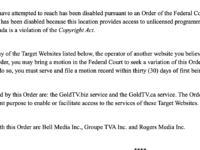The agreement on a revised Canada-US-Mexico Trade Agreement this week featured both good news and bad news. Among the positive changes in the revised agreement is the significant changes to the patent provisions, including the elimination of the ten years of protection for biologics. That provision would have required changes to Canadian law and added significant new costs to pharmaceuticals. Moreover, the retention of the Internet safe harbour provision is a win for freedom of expression in Canada as it will help ensure that free speech is not lost in the current rush to regulate Internet platforms.
On the downside, many of the problematic digital trade provisions remain unchanged (they can also be found in the CPTPP so their inclusion does not change much) as does the requirement for a copyright term extension to life of the author plus 70 years. The additional 20 years of protection beyond the international standard found in the Berne Convention will be costly for Canadians with little discernible benefit.












